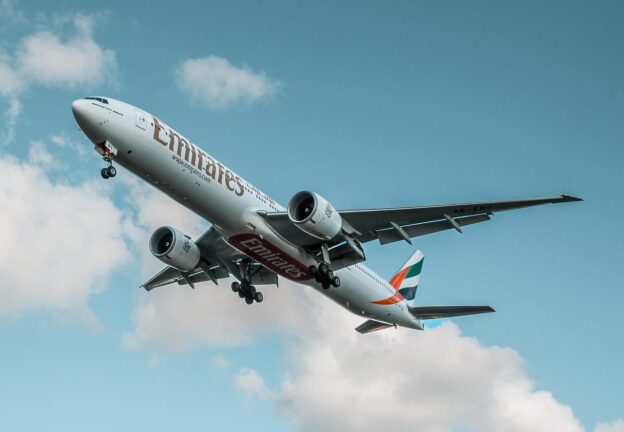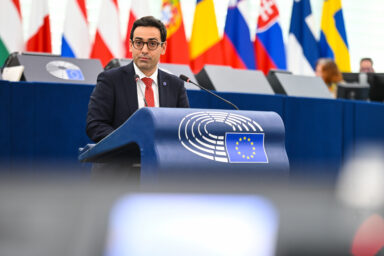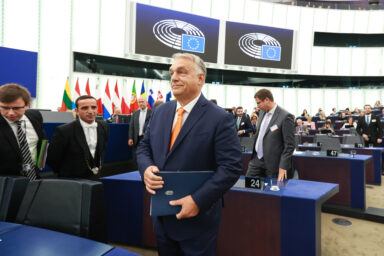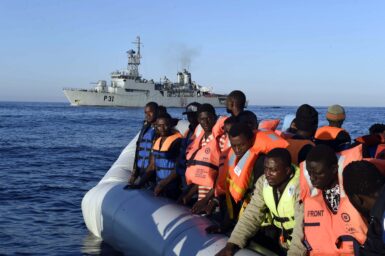Boeing has won conditional approval from the European Commission to buy Spirit AeroSystems, the biggest maker of fuselage parts for planes like the 737 and 787. To soothe EU competition fears, Boeing must sell Spirit’s units that supply Airbus, as well as its Malaysia production site, to other buyers. If it does on time, the deal goes ahead.
The European Commission announced on Tuesday it had approved—under the EU Merger Regulation—Boeing’s proposed acquisition of Spirit AeroSystems Holdings, Inc. The clearance is conditional. The companies must fully comply with the commitments they offered.
Boeing agreed last July to buy Spirit for $37.25 a share in an all-stock deal. That price valued Spirit at $4.7bn. Including Spirit’s net debt the total transaction value was $8.3bn.
The deal reunites the two firms about two decades after Spirit was spun off. It brings a key supplier for the 737 and 787 Dreamliner back to Boeing. Spirit supplies aerostructures used by manufacturers and suppliers of large commercial aircraft such as Airbus.
You might be interested
Brussels’s concerns
EU regulators’ concerns were clear. The Commission found that the transaction, as initially notified, would have significantly reduced competition in global markets for aerostructures and large commercial aircraft. The worry centred on Spirit’s role. Spirit primarily manufactures and supplies aerostructures for large commercial aircraft.
The Commission concluded the merged entity would have both the ability and the incentive to stop supplying aerostructures, or at least to deteriorate supply conditions, to manufacturers of large commercial aircraft, in particular Airbus. It also found the merged group could gain access to commercially sensitive information relating to Airbus and use it to its advantage.
To address these concerns Boeing offered structural remedies. Boeing offered to divest all of Spirit’s businesses that currently supply Airbus with aerostructures, including all necessary assets and personnel, to Airbus. Boeing also offered to divest Spirit’s site in Malaysia—to Composites Technology Research Malaysia Sdn. Bhd.(CTRM)—which currently supplies, among others, Airbus with aerostructures.
Remedies accepted
The Commission accepted these commitments as sufficient. It found the remedies “fully address the competition concerns” that it identified. The remedies, it said in a 14 October statement, “will enable Airbus to integrate Spirit’s businesses that currently supply aerostructures to Airbus into Airbus’ own operations, and hence secure its supply chain. Also, they will allow a new competitive force, CTRM (Composites Technology Research Malaysia), to enter the market for aerostructures.”
The market test returned positive feedback. Following that, the Commission concluded that the transaction, as modified by the commitments, would no longer raise competition concerns. It approved Airbus and CTRM as suitable buyers for the divested businesses.
This could have driven up prices and make large commercial aircraft parts harder to find, meaning that European passengers could face higher ticket costs. — Teresa Ribera, Executive Vice-President for Clean, Just and Competitive Transition
The Commission assessed each buyer against three criteria. Each must be independent and unconnected to Boeing and Spirit. Each must have the financial resources, proven relevant expertise and the incentive and ability to maintain and develop the divested business as a viable competitive force. Each must be able to acquire without creating new competition problems or delaying implementation.
Conditions and oversight
The decision remains conditional on full compliance with the commitments. The Commission will supervise implementation. An independent trustee will monitor the divestments and their execution.
The approval follows a standard EU timetable. The parties notified the transaction on 26 August 2025. The Commission generally has 25 working days for a Phase I decision. When commitments are proposed in Phase I the Commission may take an additional 10 working days, making the total 35 working days—such as in this case.
Officials emphasised the consumer angle. Teresa Ribera, the Union’s competition chief, warned of possible harms. “Spirit is an important supplier of aerostructures to large commercial aircraft manufacturers, such as Boeing and Airbus. We had concerns that by acquiring Spirit, Boeing would have an incentive to stop or limit supplies to its competitor, Airbus. This could have driven up prices and make large commercial aircraft parts harder to find, meaning that European passengers could face higher ticket costs. Boeing’s commitments will preserve competition in this crucial market and enable the entry of a new rival, and ensure commercial aircraft makers get the parts they need at competitive prices.”
Supply security
The Commission noted the remedies target supply security. It recorded that divesting Spirit’s Airbus-facing businesses would allow Airbus to integrate those operations into its own supply chain. It likewise noted that CTRM’s entry would introduce a new competitive force in aerostructures.
The deal follows prior scrutiny elsewhere. The United Kingdom’s Competition and Markets Authority completed an initial probe and cleared the $4.7bn transaction two months earlier. The CMA decided not to refer the deal for an in-depth investigation and did not publish reasons for its decision.
Boeing and Spirit are both headquartered in the United States. Boeing designs, manufactures and sells commercial aircraft and defence, space and security systems. Spirit manufactures aerostructures for commercial and military aircraft and business jets and provides aftermarket services. Airbus, headquartered in the Netherlands with its main operational office in France, designs and builds commercial aircraft and defence and space products. CTRM, based in Malaysia, supplies advanced aerospace composites and is wholly owned by DRB-HICOM.
No unfair advantages
The Commission is to publish more details in the near future. The clearance now shifts the focus to implementation. Observers will watch whether the divestments proceed on time and whether Airbus and CTRM can sustain the businesses as competitive suppliers. The approval illustrates the Commission’s approach to complex industrial mergers. Structural remedies can preserve competition if the buyers prove suitable and if authorities can monitor compliance. The test now is operational: whether the remedies translate into secure supplies, competitive prices and no undue advantage for the merged group.











